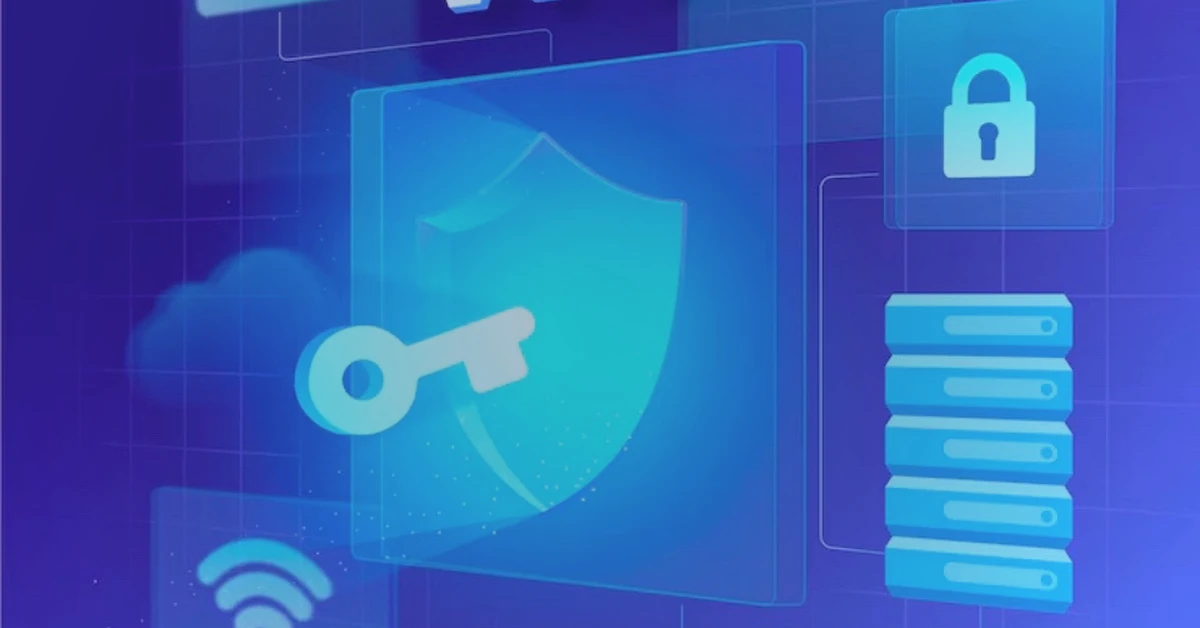What Is a VPN? How VPNs Work in the UK (2025 Guide)

Updated: 2025-09-13 • ~12–15 min read
Best VPN Deals (trusted in the UK)
What is a VPN?
A VPN (Virtual Private Network) is a secure, encrypted tunnel between your device and a remote server operated by a VPN provider. When the VPN is on, your internet traffic is wrapped in encryption and sent to that server; websites and apps see the server’s IP address instead of yours. This provides privacy from your ISP and network admins, helps reduce tracking, and can stabilise access to services that depend on location.
In the UK, people use VPNs for three main reasons: (1) privacy and fewer ads/trackers, (2) safety on public Wi-Fi (cafés, transport, airports), and (3) reliability with streaming and gaming by changing server locations or avoiding throttling. If you’re choosing a provider, see our buyer’s guide: Best VPN for the UK, and if you’re unsure about free options, compare Free vs Paid VPNs in the UK.
How a VPN works (simple)
- Encryption: The app encrypts your traffic locally so your ISP or hotspot can’t easily read it.
- Tunnelling: Encrypted traffic goes to a VPN server (for example, London). Out on the web, sites see the server’s IP.
- Location choice: You can pick nearby UK servers for speed or other regions when you need different routing.
- Extra features: A kill switch blocks traffic if the VPN drops; DNS leak protection keeps lookups inside the tunnel.
New to VPN concepts? The quick setup below gets you running on Windows, macOS, iOS and Android in minutes. For platform-specific walkthroughs later, jump to: Windows, macOS, iPhone, Android.
Why VPNs matter in the UK
- Public Wi-Fi protection: Encrypts traffic on trains, cafés, hotels and airports across the UK. See our tips: Stay Safe on UK Public Wi-Fi.
- ISP and workplace privacy: Reduces what your broadband provider or campus/work can see about your browsing.
- Streaming reliability: When a platform is temperamental, rotating UK servers often fixes issues. For detail: Netflix UK, BBC iPlayer.
- Gaming stability: Some providers offer anti-DDoS routes or better peering. See Gaming with a VPN (UK).
- Remote work: Safer logins and file access for home offices. See VPN for Remote Work (UK).
Quick setup (Windows, macOS, iOS, Android)
- Install & sign in. Choose a reputable provider (our UK picks).
- Server selection. Start with a nearby UK server (e.g., London, Manchester). Nearby servers = lower latency and higher speed.
- Protocol. Use WireGuard (or NordLynx/Lightway equivalents) for speed. If a network is restrictive, try OpenVPN TCP/443.
- Safety features. Enable Kill Switch and DNS leak protection. Turn on auto-connect on Wi-Fi.
- Test. Check IP & DNS at
dnsleaktest.com. If something leaks, reconnect or switch protocol.
Router installs are useful for Smart TV/console coverage across the home—see VPN Router Setup (UK) and our broader overview VPN on a Router.
Protocols: WireGuard vs OpenVPN vs IKEv2
Protocols are the “rules” a VPN uses to move encrypted data. Each has pros and cons:
| Protocol | Best for | Pros | Trade-offs |
|---|---|---|---|
| WireGuard | Everyday UK use | Fast, modern crypto, quick re-connects (great on 5G) | Rarely blocked; if it is, switch to OpenVPN |
| OpenVPN TCP/443 | Restrictive networks | Often works where others fail; stable | Slower than WireGuard |
| IKEv2 | Mobile | Good roaming between Wi-Fi/4G/5G | May be blocked on some networks |
Want a deeper dive? See WireGuard vs OpenVPN vs IKEv2 (UK).
Streaming in the UK (Netflix, BBC iPlayer)
Streaming services frequently tweak their IP ranges, so a server that worked yesterday may need rotation today. Two practical playbooks:
Netflix UK
- Pick a UK server with low load (London/Birmingham). If you see an “unblocker” error, switch to another UK location.
- Try WireGuard first; if blocked, switch to OpenVPN TCP/443 and relaunch the app.
- Clear app cache/restart device. On Smart TVs prefer Ethernet over Wi-Fi. Consider a router setup: VPN Router Setup (UK).
Full guide: Best VPNs for Netflix UK.
BBC iPlayer
- Use UK servers recommended by your provider for iPlayer (ask support or check in-app tips).
- If you get a geo-error, rotate server city and relaunch iPlayer; some IP ranges are more reliable than others.
- Run a leak test (below). Even one DNS leak can cause a block.
Full guide: VPN for BBC iPlayer (UK).
Public Wi-Fi safety
Open hotspots (cafés, trains, hotels, airports) are convenient but noisy: devices broadcast, captive portals inject pages, and some networks throttle or filter traffic. A VPN encrypts your data so anyone between you and the server sees only gibberish. For travellers, auto-connect on unknown Wi-Fi is invaluable.
- Prefer HTTPS sites and official apps; a VPN is not a license to ignore phishing.
- Disable Wi-Fi auto-join for untrusted networks; use mobile hotspot if a network looks suspicious.
- Keep OS and browser updated. Many attacks rely on old bugs, not magic.
More tips: Stay Safe on UK Public Wi-Fi.
IP/DNS/WebRTC leaks (and how to check)
Three common “leak” types can expose your real details even with a VPN enabled:
- IP leak: Your public IP shows as your ISP’s rather than the VPN’s.
- DNS leak: DNS lookups happen outside the tunnel (e.g., to your ISP’s DNS).
- WebRTC leak: Browsers can reveal local/public IPs via peer-to-peer features.
How to test: Connect the VPN → visit a leak test site (e.g., dnsleaktest.com) → run Extended test. If your ISP appears in DNS resolvers, you have a DNS leak. Re-connect or switch protocol; enable leak protection in the app. On browsers, disable WebRTC or use an extension if necessary.
Walkthrough: IP/DNS Leaks: How to Check (UK).
Is a VPN legal in the UK?
Yes—using a VPN is legal in the UK. However, services you access (streaming, games, campuses, workplaces) can have their own terms, and they may restrict “unblockers.” Follow platform rules and local laws. For more context, see Is a VPN Legal in the UK?.
VPN on a router
Installing a VPN on your home router covers every device at once: Smart TVs, consoles and guests. The trade-off is a more complex setup and potential speed caps on cheaper routers. If you want a step-by-step approach, read VPN Router Setup (UK) and our overview VPN on a Router.
Ready to try a VPN?
Pick a provider that performs well in the UK, offers audited no-logs policies and supports your devices.
Video: What is a VPN?
Prefer watching to reading? This short video explains core concepts in plain English.
Video unavailable? Open it on YouTube:
